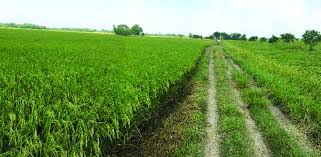
Here are some key applications of nuclear techniques:
Crop Improvement
- Mutation breeding: Using radiation to induce genetic mutations in crops, leading to the development of new varieties with desirable traits like disease resistance, drought tolerance, and higher yield.
- Soil and plant nutrition studies: Using isotopes to trace nutrient uptake by plants, helping to optimize fertilizer use and improve soil management practices.
Pest and Disease Control
- Sterile Insect Technique (SIT): Releasing sterilized male insects into the environment to reduce pest populations.
- Insect pest control: Using radiation to sterilize or control insect pests, protecting crops and livestock.
- Disease diagnosis: Employing nuclear techniques for rapid and accurate detection of plant and animal diseases.
Animal Production and Health
- Animal nutrition: Using isotopes to study nutrient utilization in livestock, improving feed efficiency and animal health.
- Animal disease diagnosis: Developing nuclear-based diagnostic tools for early detection and control of animal diseases.
- Food safety: Ensuring food products from animal origin are safe for consumption through radiation techniques.
Soil and Water Management
- Soil moisture measurement: Using isotopes to monitor soil moisture levels, aiding in irrigation scheduling and water conservation.
- Water resource management: Tracing water movement through the environment to optimize water use efficiency.
- Pollution control: Detecting and monitoring environmental pollutants to protect agricultural ecosystems.
Food Safety and Quality
- Food irradiation: Extending the shelf life of food products and reducing food-borne diseases.
- Food authenticity: Using nuclear techniques to verify the origin and quality of food products.
- Residue analysis: Monitoring pesticide and contaminant levels in food to ensure consumer safety.